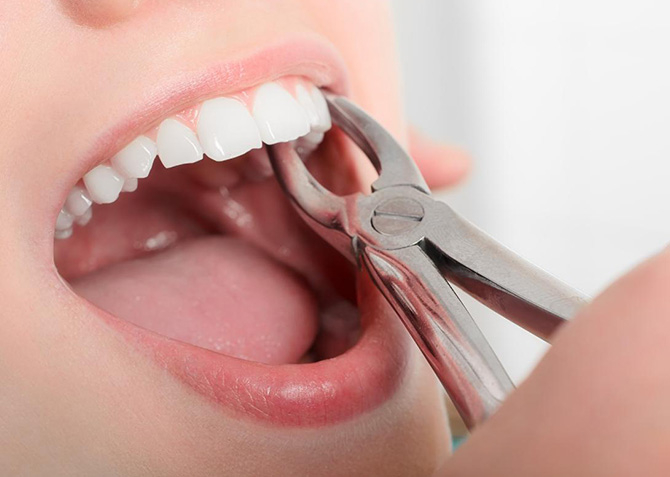Tooth Extraction
Most of the time, a filling, crown, or other dental procedure can repair teeth that have been shattered or harmed by tooth decay. Still, the tooth may need to be extracted if the damage is too serious to be fixed in some cases. Infections, crowding, or serious tooth decay may necessitate dental extractions.
Although tooth extraction can be frightening for many patients, it is actually a simple procedure. On this page, you will find what you need to know about tooth extraction.
What is Tooth Extraction?
When there is a problem and saving the tooth doesn't seem likely, tooth extraction is the preferred action to take. We can infer that tooth extraction is the dentists' favored last resort. Tooth extraction refers to the removal of a tooth from the mouth without causing any harm to the surrounding tissues when saving the tooth is not an option. During this procedure, the tooth is extracted with the aid of surgical tools from its socket in the bone.
Despite the fact that permanent teeth are meant to last a lifetime, there are a variety of situations in which tooth extraction may be necessary. A tooth that has been irreversibly damaged by trauma or decay is a very common cause. Additional factors include:
- Sometimes dentists remove teeth to make space for orthodontic treatment. If your teeth are too big for your mouth, it might not be possible to correctly align them using orthodontics. Similar to this, your dentist might advise extracting a tooth if it cannot erupt through the gum because the mouth does not have enough space for it.
- Even the slightest possibility of infection in a single tooth may be sufficient justification for tooth extraction if your immune system is already weakened (for instance, due to chemotherapy or an organ transplant).
- The pulp, which is the part of the tooth that contains nerves and blood vessels, can become infected if dental decay or other damage reaches it. Usually, root canal operation can fix this, but in certain cases, extraction may be necessary to stop the infection from spreading if it is too serious to be treated with root canal treatment or antibiotics.
- It can be essential to extract the tooth if periodontal disease, an infection of the tissues and bones that surround and support the teeth, has caused the loosening of the teeth.
Does Tooth Extraction Hurt?
Most patients are concerned that they may experience pain during tooth extraction. Anesthesia, however, works to keep the patient from feeling any pain during this operation. This is why a local anesthetic is applied to the area prior to beginning the tooth extraction. The patient doesn't experience any pain, aches, or cramps. The dentist checks whether the anesthetic is working before beginning the tooth extraction. When the numbness is fully achieved, the operation starts.
Tooth Extraction Prices in İstanbul
The cost of a tooth extraction may vary based on the procedure or oral health issue involved. As Lydia Med, we are available to you in our clinics in İstanbul with our qualified medical staff and affordable pricing. To discover more, schedule a free consultation now.


